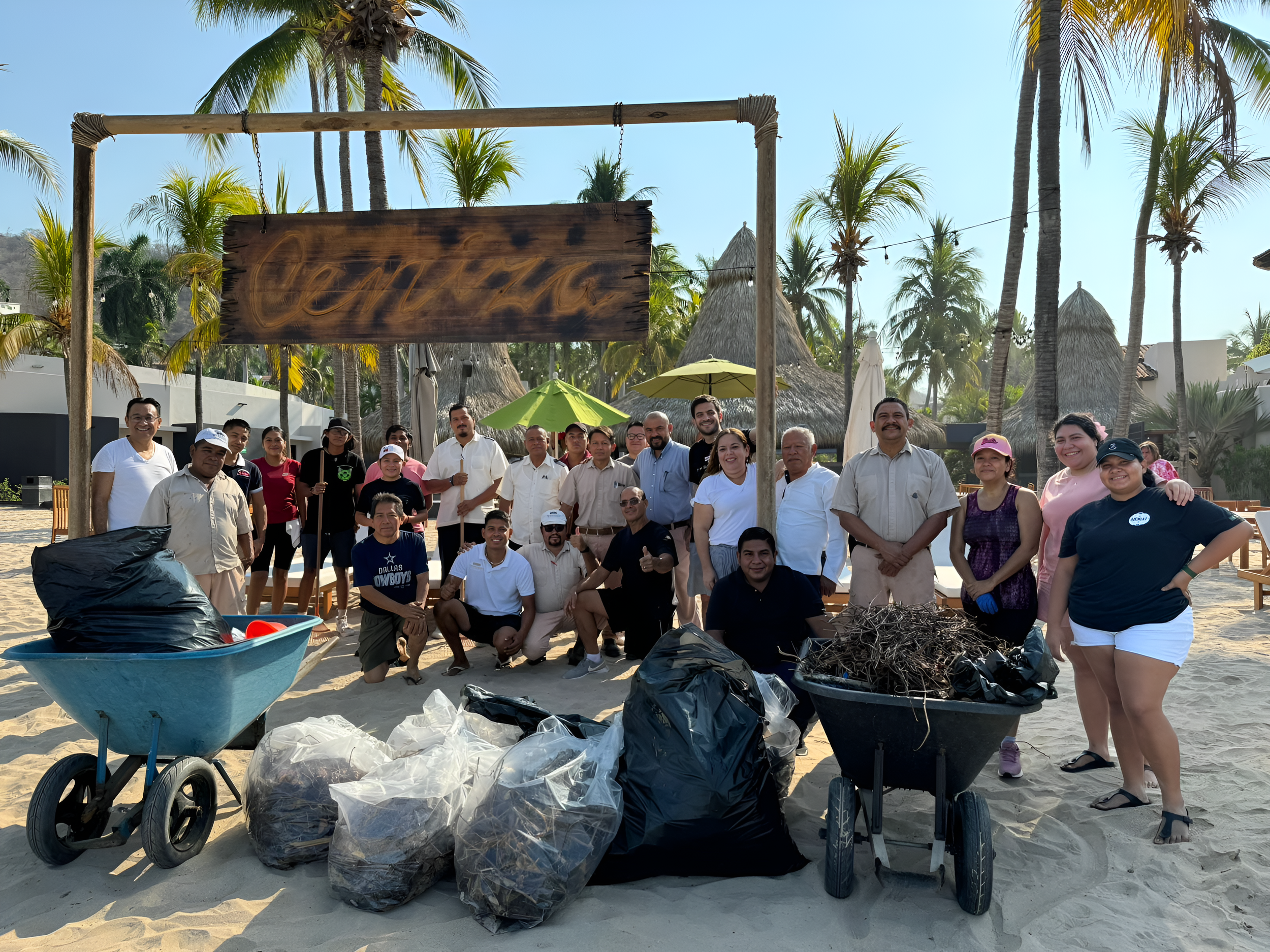Tucked away in the French Alps, HI! France - Serre Chevalier Youth Hostel has turned sustainability into a core part of its operations, while fostering community engagement.
In this new Green Key Good Practice article, the hostel team shares with us their sustainability path.
Green Key (GK): How did you move your first steps towards a more sustainable approach?
HI! France Serre Chevalier Youth Hostel (HSC): Our journey began with a simple yet impactful idea—reusing salvaged furniture to furnish our common areas when we faced financial difficulties in 2018. This led us to explore creative ways to incorporate sustainability throughout the hostel. One key initiative was to collect used skis from local shops at the end of each winter season for a small fee. Typically, skis have a lifespan of about three years, but by giving them a second life as budget-friendly rentals, we provide an affordable option for our guests while significantly reducing waste.
To further minimise packaging waste, and benefit from local and sustainable products, we decided to create our own garden to supply a portion of the vegetables needed for our restaurant. This garden has become a cornerstone of our themed breaks, where guests participate in activities like permaculture workshops and Erasmus Plus projects that raise awareness about sustainable food. During the off-peak season in June, we offer discounted stays in exchange for participation in these activities, which include creating a climate fresco, learning about permaculture, and visiting the local glacier.
We also addressed waste generated from packed lunches by encouraging guests to bring their own lunch boxes. Additionally, we developed a way to deal with leftover bread, a common waste product in France. Instead of discarding it, we let the bread harden and then use it in soups and puddings
GK: What results have you achieved with these initiatives?
HSC: Our efforts have yielded remarkable results. For instance, by minimising food waste as much as possible, we not only contribute to environmental conservation but also save a considerable amount of time in meal preparation, which is crucial as we do not have the resources to prepare all 60 meals on our own. We have also partnered with the association “Les Terrasses Solidaires” to organise a collection of leftover food, ensuring that no edible food goes to waste. The positive feedback from our guests has confirmed that these initiatives have at our hostel.
GK: What is next for HI! France Serre Chevalier Youth Hostel?
HSC: Our latest community initiative is the creation of a shared henhouse and a permaculture vegetable garden, accessible to residents who do not have their own gardening space. Around ten households now help take care of the henhouse, fostering a powerful sense of community. The vegetable garden is open to anyone interested in participating, making sustainable living practices more accessible to all.
We believe that education is key to our environmental approach. It is essential to take the time to explain the benefits of these systems to our employees, helping them understand that these practices do not waste time but rather create new, beneficial habits. These are the new reflexes we aim to instill in our team.
Top tips from HI! France Serre Chevalier Youth Hostel:
Start with what you have: from old furnitures to used equipments, give a second life to existing resources
Engage your community: actively involve guests and residents in your sustainability efforts to foster a sense of community and shared responsibility.
Be creative with waste: start from your kitchen and get creative!
Educate your team: make sure your staff understands the importance of sustainability, so that it can proactively apply it to its daily operations.
The HI! France Serre Chevalier Youth Hostel is part of our amazing French team, La Clef Verte, who have reached an important milestone in 2025.
Read La Clef Verte’s latest report here and join us in a round of applause for the French team and their amazing 2428 certified sites!
La Clef Verte’s Director, Nathalie Bel Baussant shares a few reflections about this milestone:
“We are facing enthusiastic development here in France. We have just announced 2428 certified sites for the year 2025, three times more than 5 years ago. The certified establishments represent above 60 million night guests and 68000 employees.
We notice a real desire from establishments management and employees to change practices. In many territories, they can benefit from the support of local tourism authorities.
Our role is to increase awareness, to support establishments and to organize the certification process. Our team has grown a lot, with over 30 team members expected as from April 2025.”
- Nathalie Bel Baussant, Clef Verte Director
About HI! France Serre Chevalier Youth Hostel
The youth hostel in Serre-Chevalier is a warm and welcoming place nestled in the heart of the French Alps. Ideally located, it provides an exceptional setting for mountain enthusiasts, both in summer and winter. More than just accommodation, the hostel is a true meeting point where the friendly staff foster a family-like atmosphere.
The communal areas are designed to encourage connections, whether over a shared meal, during an evening event, or after a day of mountain adventures. Here, travelers from around the world exchange experiences, forge friendships, and discover the richness of different cultures and stories.
What did you think of this Good Practice article? Could you adapt it to the needs and circumstances of your own Green Key establishment? We would love to see that!
Do you have your own brilliant Good Practice that you would like to share with the network? Click the link below to submit news and ood practices with Green Key International and the entire network.
Many thanks to our Green Key certified @HI Serre Chevalier Youth Hostel for sharing their Good Practice with us and to La Clef Verte in France for facilitating these news!














































